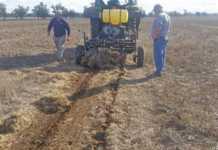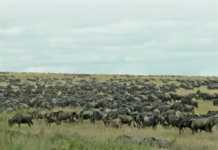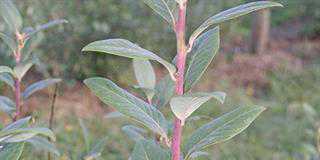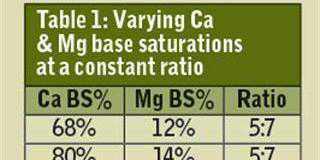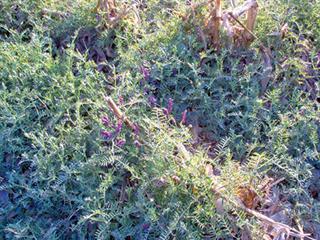
I am writing this in a charming fisherman’s cottage in Arniston, in the southern Cape. I’m on holiday and in the mood to go fishing. But not for fish. Ever since meeting Gert, I’ve been wanting to hook a few inland farmers out of the murky waters of spiralling fertiliser and fuel costs, and return them to more productive and profitable ‘waters’. As bait, I’m going to use legumes.
En route from Witsand to Arniston, my wife Hazel and I had breakfast at the Malgas Hotel, where we met a Free State farmer called Gert. He sat down with his family at the table next to ours. We exchanged the usual pleasantries and I noticed from Gert’s body language that he wasn’t too comfortable with this ‘holiday thing’. When he heard I was involved in agriculture, he brought his chair over to our table. I soon discovered that Gert was searching for a solution to a major problem, the same one that plagues most farmers in South Africa – and all around the world.
He has a good farming unit in a region where the average rainfall is a little above 500mm a year. He plants 500ha maize and runs 500 ewes and 120 Bonsmaras. Guess what his problem is? His production costs have escalated so much in the past decade that his farm is no longer really profitable. For Gert, it has become a matter of mere survival.
His maize took a beating in this year’s drought; he averaged only 2t/ ha, compared with his normal harvest of between 3t and 4t. He’s on a financial merry-go-round that isn’t very merry at all! He borrows money to plant his crops and feed his sheep and cattle during winter, then pays it back at the end of the season – just to borrow it all over again for the next season.
The fact that he makes low-quality hay – at high cost – to get his livestock through winter is another reason he does not have the money to enjoy a much-needed holiday. Gert knows that his soils are run-down and have a low inherent fertility characterised by a low humus content. He wanted to know from me how he could re-build the natural fertility of his lands.
In the short time that we had together, I told Gert that legumes have the potential to radically improve the profit profile of his farm.
Profit from legumes
Two thoughts on how best to incorporate legumes into his farming system sprang to mind:
- I suggested he plant at least 50% of his arable soils to legume or legume/grass pasture to grow his sheep and beef enterprise. Sericea lespedeza (smart man’s lucerne, previously known as poor man’s lucerne), or a mix of Birdsfoot trefoil, Crown vetch and Smutsfinger grass, would be good choices. I’m excluding lucerne, as Gert farms Mutton Merinos and Bonsmaras, and the risk of losing animals to bloat is too high. A crucial aspect of success with legumes is the correction of the soil’s mineral balance. As this is expensive, Gert will have to phase in the recommended pastures gradually, but once he has them, he will have an abundance of high-quality pasture that requires little or no yearly input. This will greatly reduce the amount of money he has to borrow each year for fertiliser and fuel. It will, of course, also reduce the risk of losing his farm should he run into a two- or three-year drought cycle.
- I further suggested that Gert switch to planting his maize in tramlines so that he can plant legumes in the pathways between the tramlines. This practice has the potential to double the net profit per hectare, as I’ve explained in recent previous columns.
Oh dear, I’ve lost track of time. The colourful fishing boats are returning to the landing zone on the beach, and I want to be there to buy some fish – real ones this time. I have, however, made up my mind to visit Gert when I return to the Free State and work through the practicalities of my advice to transform the profitability of his farming enterprise.
John Fair is a pasture consultant. He heads up Fair’s Biofarm Assist, and can be contacted on 058 622 3585 or [email protected].


